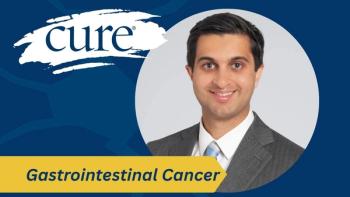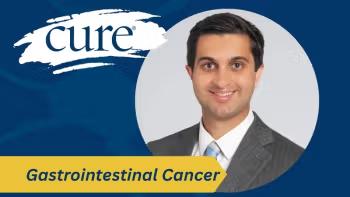
It's Important for Patients to Understand What's Driving Their Gastric Cancer
There’s a greater responsibility than ever to understand gastric cancer, its causes and its treatments.
Gastric cancer is on the rise and tends to be diagnosed at more advanced stages, so there’s a greater responsibility than ever to understand the disease, its causes and its treatments. That may sound challenging, but it actually presents an opportunity.
Results of the latest gastric cancer research have identified a number of genetic mutations associated with the disease, many of which are already treatable with approved drugs. It’s been nearly 10 years since Herceptin (trastuzumab), a targeted drug developed to treat HER2-positive breast cancer, was approved as a therapy for gastric cancer that overexpresses the growth-factor protein HER2. Now researchers are combining immunotherapy with that drug and with next-generation HER2 kinase inhibitors for even better results. Without a doubt, it benefits patients to know whether their tumors carry the HER2 gene mutation.
Immunotherapy may work particularly well in gastric cancers that are mis­match repair deficient, which means they have trouble repairing their own dam­aged DNA and are riddled with genetic mutations. This may happen because the disease developed from the stomach infection Helicobacter pylori or for other reasons, but either way, patients with this status should find out whether they’re eligible for immunotherapy.
In other studies, researchers are testing newer targeted drugs on gastric tumors that carry mutations to the EGFR, FGFR2 and MET genes. Results of these inves­tigations haven’t been groundbreaking so far, but there are enough personalized treatment options to suggest that all patients with gastric cancer should have their tumor tissue genomically tested. At the moment, testing for a mutation such as BRAF is available to people with gastric cancer only in clinical trials, but testing for other aberrations, such as HER2 overexpression or mismatch repair deficiency, is considered standard because there are therapies approved to treat these problems. Hospitals may do some of this testing automatically, but to make sure it happens, patients should ask for the test as soon as possible after diagnosis because it could affect their treatment choices, quality of life and health outcomes.
In addition, patients with particular mutations in their tumors — such as those associated with Lynch syndrome or BRCA1 or BRCA2 — or who have a strong family history of breast, ovarian, pancreatic, prostate or gastric cancer may also want to seek genetic testing of their blood or saliva to check for inherited gene mutations that could predispose them to cancer. This can be important even for someone who already has the disease, because it can identify risk for additional cancers and alert relatives that they, too, may be at risk.
Finally, when it comes to awareness about gastric and gastroesophageal junc­tion cancers, no one should overlook the recent rise of these diseases among adults under 50. A suspected reason is the nation’s obesity epidemic and the gastric reflux that often accompanies it — a potential precursor to cancer. Being aware of this modifiable factor can help individuals avoid the development of this challenging disease.



